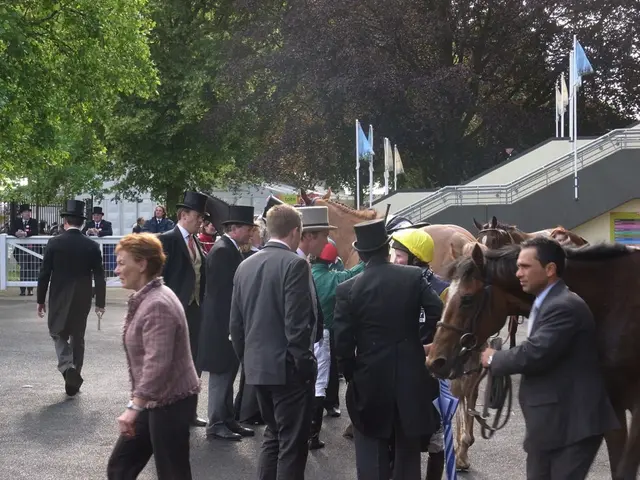Tight Contest in Polish Presidential Election Leads to Runoff Scheduled for June.
In the closely-contested Polish presidential election held on Sunday, centrist Warsaw Mayor Rafał Trzaskowski and nationalist rival Karol Nawrocki are set to face off in a runoff on June 1. The tight first-round results underscore the deep divisions within the country regarding its future and its position in Europe.
Exiting polls, conducted by Ipsos, showed Trzaskowski capturing 30.8 percent of the vote, with Nawrocki following closely at 29.1 percent. Subsequent polls suggested a margin as narrow as 0.7 percent between the two candidates.
With Neither Trzaskowski nor Nawrocki securing the 50 percent needed for an outright victory, Poland heads to a second round, anticipated to be fiercely competitive. The presidency, although largely ceremonial, holds significant power through the ability to veto legislation and shape foreign policy.
A thirteen-candidate field failed to produce any other close contenders, with far-right candidate Sławomir Mentzen finishing third with approximately 15 percent of the vote. The remaining candidates trailed significantly behind.
The election has assumed the status of a referendum on Poland's direction. Trzaskowski pledges a commitment to strengthening ties with the European Union, restoring judicial independence, and liberalizing social policies. In stark contrast, Nawrocki promises lower taxes, a rollback of EU environmental and migration policies, and a return to traditional values.
The outcome of the presidential race will determine whether Prime Minister Donald Tusk's government can proceed with its pro-European reforms or face continued obstruction. Tusk's administration, which ended eight years of nationalist Law and Justice (PiS) rule in 2023, has encountered resistance from the outgoing president and opposition.
Nearly 29 million Poles were eligible to vote, with a high turnout anticipated amid public interest and a campaign dominated by contentious debates over foreign policy, LGBTQ rights, abortion, and the cost of living. Approximately 260,000 election officials commenced ballot-counting after polls closed at 9 p.m. local time, with official results due Monday or Tuesday.
Both leading candidates addressed supporters following the exit polls. Trzaskowski called for unity and urged his supporters to mobilize for the runoff. Nawrocki framed the upcoming vote as a battle for Poland's sovereignty and traditional values.
The campaign was marked by reports of foreign interference, including cyberattacks targeting the ruling coalition and allegations of foreign-funded political ads on social media. The ongoing war in neighboring Ukraine and broader European security concerns also weighed heavily on voters' minds, with candidates presenting varying visions for Poland's role in the region.
The June 1 runoff is expected to be hotly contested, as both camps seek to win over supporters of eliminated candidates. Analysts have cautioned that the outcome could have far-reaching consequences for Poland’s domestic stability and its standing in the European Union.
- The presidential election in Poland, though primarily ceremonial, holds crucial power in vetoing legislation and shaping foreign policy, making it integral to the country's politics and general-news.
- The runoff between Rafał Trzaskowski and Karol Nawrocki will essentially serve as a referendum on Poland's direction, with the winner poised to significantly influence the nation's future, especially in terms of EU ties, judicial independence, social policies, and taxation.
- The ongoing war in Ukraine and European security concerns have shaped voters' perspectives during the election campaign, with candidates offering different visions for Poland's regional role, a topic falling under the category of foreign policy and law.
- Articulating contrasting views, Trzaskowski advocates for strengthening EU ties, restoring judicial independence, and liberalizing social policies, while Nawrocki promotes lower taxes, a rollback of EU environmental and migration policies, and a return to traditional values, thereby involving issues of economics, environment, and social justice.
- Amid the election, there have been reports of foreign interference, such as cyberattacks and allegations of foreign-funded political ads on social media, raising concerns over election integrity and highlighting the need for AI solutions to detect and prevent such activities in the realm of politics and policy.
- The environment, a pertinent issue in today's world, has also been a topic of debate during the campaign, with candidates discussing their respective approaches to policies concerning the preservation and conservation of the environment.








